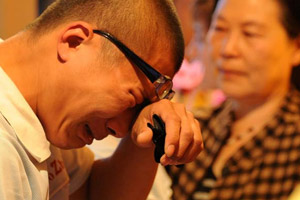Pilot projects aim to move minor criminal cases through system quickly
China's top court is drafting a guideline to speed up cases involving minor crimes to improve efficiency and make better use of resources, a senior judge said.
Misdemeanors have piled up since a number of offenses that used to be punished in the laojiao system, or re-education through labor, were written into the Criminal Law, said a senior judge of the Supreme People's Court, who requested anonymity.
Cases involving theft rose by 7.5 percent in 2011, when the revision took effect, and rose again by 16.6 percent in 2012, according to the court.
But the number of judges has not kept pace with the increasing workload.
 |
Zhou Qiang, president of the Supreme People's Court, has said earlier that after the laojiao system was abolished, courts at each level were asked to boost trial procedures.
The top court said the pilot program has been effective and the proposed guideline is soliciting opinions, but it did not disclose how many cases have been concluded under the program.
The program asks courts to conclude a minor criminal case within 15 days, the senior judge said.
For minor offenses, courts can ask defendants to appear in a courtroom and give judgments at a specified time, the senior judge said.
One court in the Xixiangtang district of Nanning, the Guangxi Zhuang autonomous region, once spent about 40 minutes concluding four cases.
A court in the Luohu district of Shenzhen, Guangdong province, even considers reducing punishment, such as cutting 10 percent off a sentence, if the defendant enters a guilty plea, the senior judge said.
Some courts are establishing special teams to hear minor cases and develop video trials, the judge said.
"The experiments are helpful to improve trial quality and judges' efficiency," he said, citing Beijing Chaoyang District People's Court as an example.
The Chaoyang court has established a group of three people — a judge, a legal assistant and a clerk — and can conclude a minor case within seven days, he said, adding that the system has helped the authority complete more than 1,000 minor criminal cases a year.
Wu Xiaojun, presiding judge of the criminal department of the court, said the system that has been used since 2009 has worked well.
"Previously, criminal detention was seldom an option, as sometimes a suspect may have been detained months before the judgment. So a sentence involving further detention was not suitable, in some cases, as the maximum period for detention is six months," Wu said.
To better temper justice with mercy, the court established a green channel with the district's public security bureau and prosecuting authority in 2009, hoping to finish investigation, prosecution and trial within one month, Wu said.
"After the channel came into force, some criminal terms, such as criminal control and criminal detention, have been applied effectively, while our work has become more efficient," Wu added.
The court in Xixiangtang has reduced the number of times it uses vehicles for legal work, such as delivering documents, by more than 30 percent, while the number of detained people in Luohu has also decreased by almost 30 percent, according to the senior judge.
Cheng Lei, an associate law professor at Renmin University of China, has been keeping a close watch on the system and said it should be developed and extended carefully.
"We shouldn't complain that we don't have enough judges to hear cases, because some of them deal with administrative affairs after promotion. Instead, we should ask them to solve disputes in grassroots courts," Cheng said.
"I understand courts want to solve disputes more quickly, but a reasonable distribution of judges, I think, should be the first step," Cheng said.
Ensuring defendants' rights should be also taken into consideration if the system is extended across the country, Cheng said.
